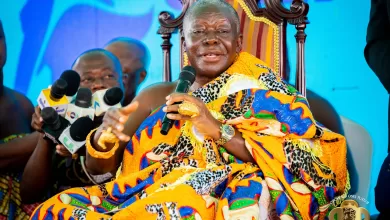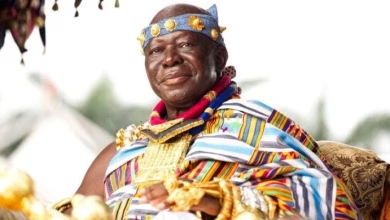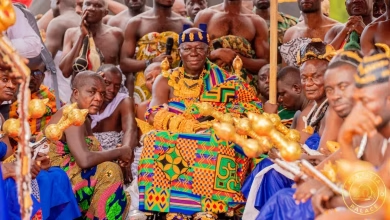Asantehene Fashions 4 Calibrators to Assess Ghana’s Education Efficacy

His Majesty Otumfuo Osei Tutu II, the Asantehene, has put out four effective calibrators in the form of testable questions to enable Ghanaians to assess the efficacy of the country’s education system across the board.
Delivering a speech on the education sector at the University of Cape Coast in the Central Region where he was conferred with his 10th honorary doctorate degree on September 5, 2024, His Majesty said these benchmarks would enable the country to face the reality it has long run from.
He asked, “Is education delivering the goals and objectives for Ghana? Has education delivered the intended outcomes? Has education justified the sacrifices that are demanded of the people? And Has Ghana education been truly fit for purpose?”
He was, however, quick to add, “By raising this question we do not seek to cast doubt on the value of education per se. We are rather probing the nation and particularly academia to be aligned to the necessity of undertaking a rigourous evaluation of the outcome of education relative to the benefits accrued to the nation to give us the tools to correct any lapses before public confidence is eroded.”
According to the King of the Asante Kingdom, these questions have become critical due to the whopping investment made in the education sector by both the State and parents while the knowledge acquired by the country’s elites doesn’t seem to be economically making any difference.
“Our institutions have produced highly educational men and women with the skills set to manage and direct the affairs of the nation. In every sector of our society, affairs are in the hands of actors who are not just educated but highly qualified. Our political class at both the executive and legislative levels with responsibility for policy formulation and direction is led and dominated by men and women who are highly educated. We have a judicial service which is highly educated.
“Our banks and insurance services are highly educated, our civil service are highly educated, our customs and internal revenue service actors are highly educated, our police and security services are highly educated, our military is highly educated. Logically, you would expect this output of highly educated leaders to translate into greater efficiency in the management of our affairs, particularly in the management of our national economy.”
He furthered, “When I hear the endless orientations about our economy being in distress, when I see our legislature unable to agree on national interest when I’m told about the declining public confidence in law enforcement, I can’t help asking myself, ‘is that all education can deliver for all our investments and all our sacrifices?’”
Otumfuo suggested economically relevant educational reforms as the magic that would transform Ghana’s fortunes.
“However we may try to refocus education, it will be of no avail unless it turns the national economy into good shape. It remains incontrovertible that only the state can deliver the resources needed to achieve the goal of education for all and only a strong resilient and sustainable economy can generate the needed resources.”
Source: Manhyia Palace






